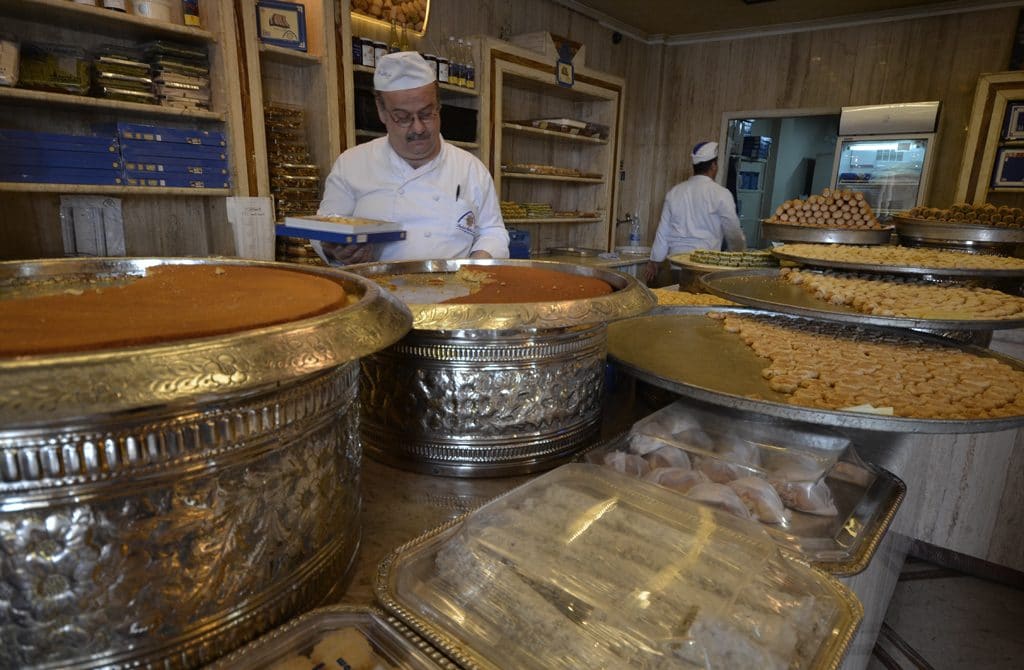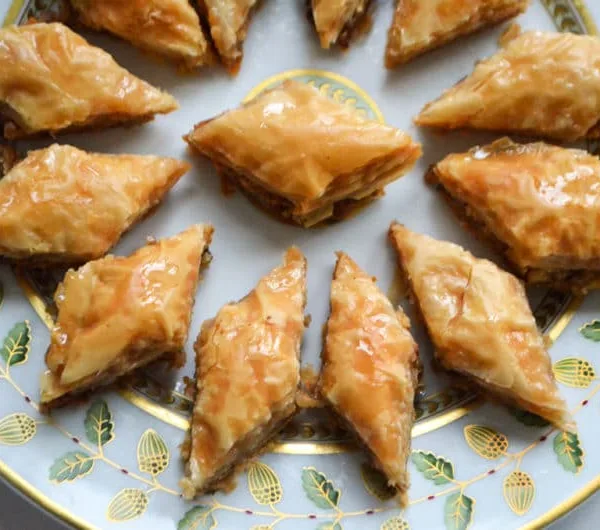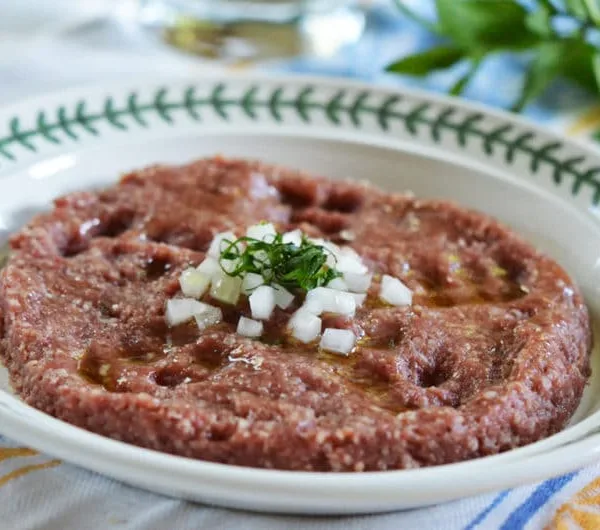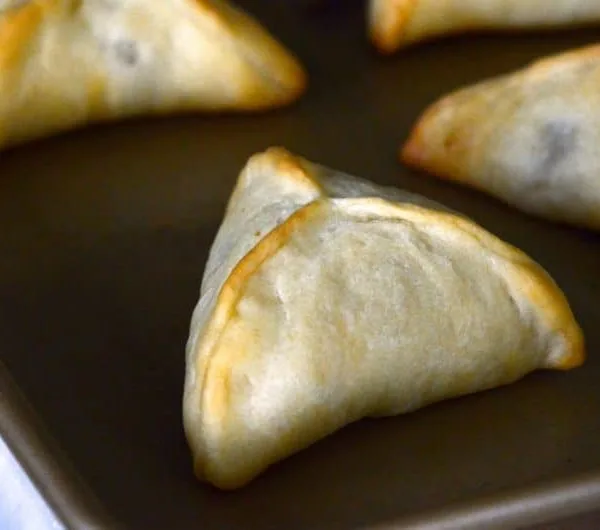This post may contain affiliate links. Please read our disclosure policy.

The knafeh was the saving grace that morning. We were driving from Beirut to Tripoli on a quest, my quest, to see the famous Hallab bakery at its source. There had been the friendly assistance of a Lebanese chef in the U.S., who was connecting me with the owners of Hallab in hopes of a tour of the back of the house where all of the pastry is made.
The machinations were comical, with someone at the hotel, the Four Seasons Beirut where we were staying, making all of the phone calls for me in Arabic. It seems I had stepped into some kind of family feud, because when we finally got a hold of the king pin to secure the tour with his cousin at the shop in Tripoli, he denied knowing anyone by that name at all.
We went for it anyway, the ride north to Tripoli, to see what we could see. There was a detour to deal with a camera glitch (of the sort with which I am all too familiar), plus Beirut traffic, and then finally our arrival in Tripoli. What we saw of the city upon entering it did not excite, and our driver, Hitham (HIGH-sum), was not in familiar territory. He was one cool cat as a rule, but I think I saw him break a sweat navigating Tripoli’s traffic jams.
Once inside the bakery, there was no holding back on our table full of treats. I was dead-set on the knafeh jibneh, a royal display in a huge flat platter looking like a golden cake which when cut, revealed its melting, gooey cheese filling. I’d first tasted the knafeh at Al Khyam bakery in Chicago years ago, where I had gone to interview George, the owner, about his shop and especially his thin pita-making method. His trademark Lebanese hospitality that morning included a small plate of knafeh, which he cut for me from one of those gigantic platters and poured a healthy glug of orange blossom syrup over top. It was rich, but in the most unobtrusive way. Before I knew it my little plate of knafeh was gone and I was accepting another, against my better judgment.
At Hallab, Hitham joined us at the table for our morning indulgence, and he ate his knafeh with such gusto that I found this more instructive than any tour of the bakery might have been.
He placed his knafeh into the sesame bread that came in a little basket alongside (a version of ka’ik) and rolled his eyes closed while he ate one mouth-watering bite after another. I followed suit. When he finished, he pulled out his cigarette and smoked one as though he was spent on more than just a plate of knafeh. There I did not follow suit, but understood his response to knafeh that good.
When I reminded my mother and sister about the knafeh we had that morning in Tripoli, they both shrugged it off. Not so much, Peg said when I raved about how good it was. Her memory was more for the sumptuous boxes of chocolates we bought there as gifts for our Lebanese cousins, and for the crazy streets of Tripoli. My mom’s experience with knafeh is more like baklawa, with a nut filling in little nests, still with orange blossom syrup (we’ll make that version sometime too).
The knafeh combination, granted, is unusual—like a cheesecake, but not—a buttery phyllo crust filled with unsweetened (and if it’s mine, slightly salty) cheese, and all of it topped with the orange blossom syrup. Knafeh makes for a hard-hitting breakfast that would take most of us all the way through to dinner, or breakfast tomorrow; I suspect many would prefer it for dessert or a snack. But I’m with Hitham on this: knafeh jibneh earns its place as an object of affection among the cognoscenti. It gives us a rich, satiating, and indulgent experience, and if it’s your thing (which it is still, astonishingly for many in Lebanon), one worth following up with a smoke.










